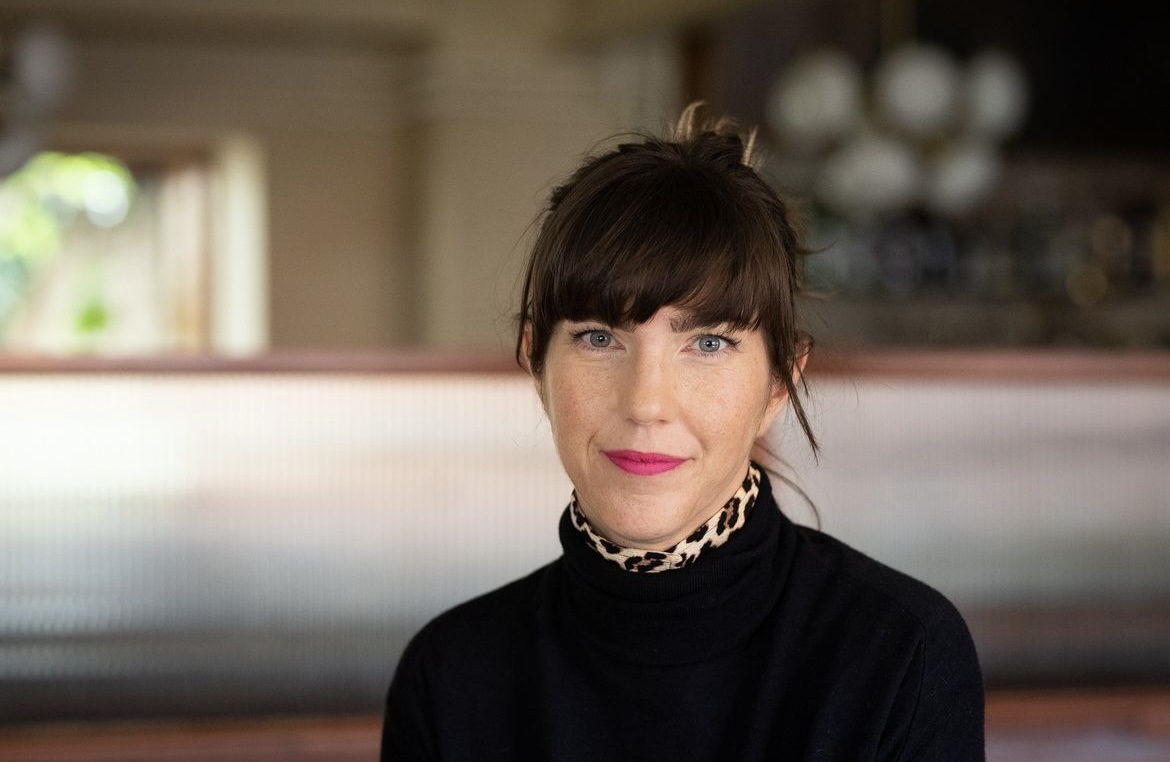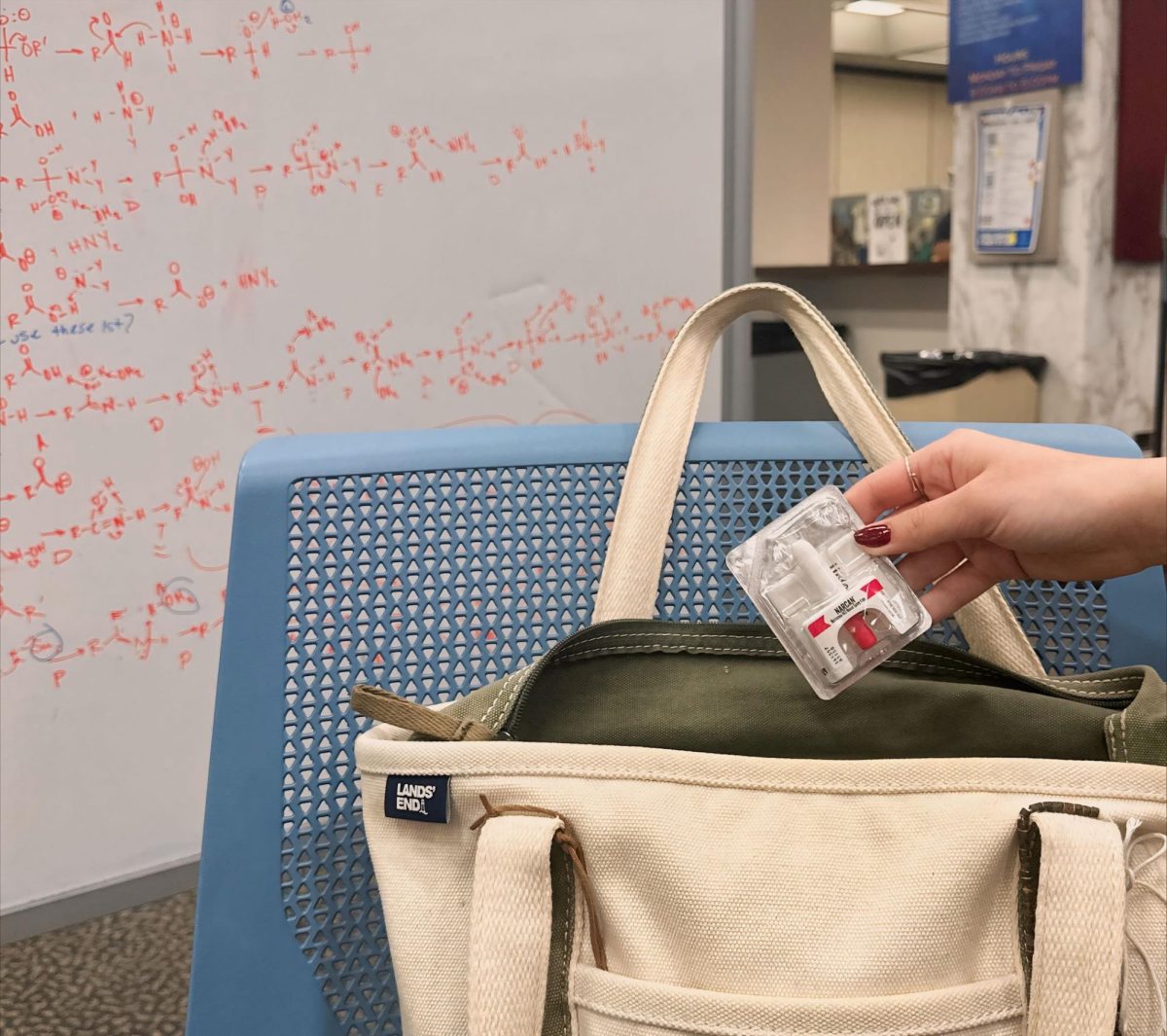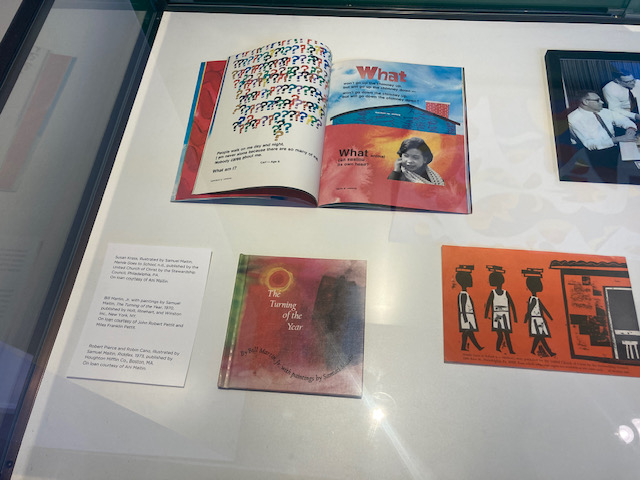Dr. Emilie Pine, PhD. is no stranger to redirection and adventure.
“I’m a huge fan of detours,” Pine said.
The author of essay collection Notes to Self and fiction novel Ruth & Pen conversed with students in the Villanova Art Gallery last Friday afternoon. In her role as Villanova’s 2024 Heimbold Chair, Pine has spent several weeks at Villanova this spring visiting and teaching in various English and Irish Studies courses, attending literary events on and off campus and reading her work as a visiting writer for Villanova’s Literary Festival. The Charles A. Heimbold, Jr. Chair of Irish Studies is a position held each Spring Semester by an accomplished Irish author and is considered a distinguished honor.
As for her personal experience at Villanova, Dr. Pine has nothing but gushing remarks about her time here.
“As soon as I got off the plane I was like, ‘Whoa. I am having new ideas,’” Pine said.
Back in Dublin, Ireland, Pine is a Professor of Modern Drama in the School of English, Drama and Film at University College Dublin. Outside of the classroom, Pine is also the Director of the Irish Memory Studies Research Network, a member of the Advisory Board of the International Memory Studies Association, an editor of the Irish University Review and the author of several academic publications, including her books The Politics of Irish Memory: Performing Remembrance in Contemporary Irish Culture and The Memory Marketplace: Witnessing Pain in Contemporary Irish and International Theatre.
In the midst of her many positions and responsibilities, Pine still finds a way to explore new areas of her discipline, venturing into creative writing. The detour in question first took place in 2018 with the publication of her collection of essays Notes to Self. Originally published by Tramp Press in Ireland (and published again the next year by The Dial Press, a division of Random House, in the United States), Notes to Self overflows with vivid memories and vulnerable reflections on Pine’s life, with a prominent theme of self-care.
When asked about her thoughts on the role of care in education, as well as the writing process, Pine noted that her goal in her classes, in which difficult content can arise in a variety of subject material, is to help her students protect themselves and stay safe while exploring these topics.
“It shouldn’t be a dangerous thing to come to class,” Pine said. “I can’t make the subject safe, but hopefully I can try to make the room a safe space.”
As for herself, Pine admits that she has become well-versed in speaking about care, but is still learning to implement it into her own life. The vulnerability present in the book made it difficult at times to discuss it with family and friends, but Pine says she ultimately feels confident in the end result.
“Editing is where you get to make sure that the thing you’re putting out in the world is [something] you’re happy with,” Pine said. “Notes to Self is vulnerable, but actually I don’t feel vulnerable about it at all, because I know exactly what that book is saying and about, and I decided on every single word in that book.”
In regards to her current and future work, Pine is content with her detour away from academia. Having spent roughly 20 years within the realm of academic writing, she views her work in Notes to Self and her fiction book Ruth & Pen as a “permission slip” to explore a new area.
“Writing was something I always wanted to do,” Pine said. “I kept refusing myself permission on it.”
Recently, she has been navigating nonfiction writing while working with survivors of the Magdalene Laundries. Also known as “mother-and-baby homes,” these institutions were run by religious orders in Ireland during the late 18th through late 20th centuries, taking in and abusing unwed mothers and young children. Because of the inadequate education the young people, now grown adults, received within the institutions, many of them are unable to write down their experiences, which is where Pine, alongside others, comes in to provide support in the process of sharing their stories.
“The difficult [part] for me in that is trying to find a way of writing about those experiences without stealing those experiences from people who have gone through them,” Pine said.
In her role, she recognizes it is not her goal to be the speaker for the survivors of the Magdalene Laundries, but to support them in the process of communicating their experiences and drawing attention to the residual impacts of the institutions that can still be felt by the Irish people.
Throughout her visit, Pine’s presence on Villanova’s campus acted as a constant reminder of the ways in which writers and artists encourage us to dream while also rooting us in the present. From her Heimbold chair reading to classroom discussions to one-on-one conversations, Pine approached every interaction as an opportunity to simultaneously bond with and learn from the Villanova community. Her eagerness for learning and passion for writing has left an indelible mark on our community, and we would be remiss not to acknowledge the “permission slip” that Pine has given us to create, to connect and to care, even if it leads to detours we never expected. They might just turn out to be something amazing.








